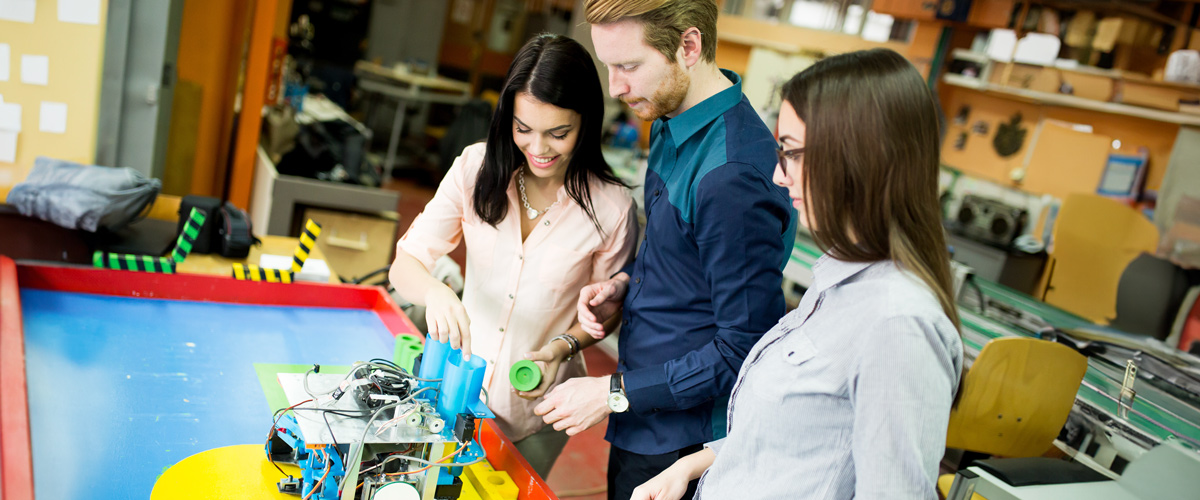Preparing for a successful career doesn’t just happen by passing your courses. You should actively pursue opportunities to develop career skills and professional work habits beyond the classroom. Employers value hearing about the professional experiences you’ve gained while in school.

The CLIMB model is designed to help engineering students navigate the complicated career journey.
Learn moreGetting started
- Participate in pre-graduation skill development opportunities
- Interact with alumni and other industry professionals to learn and understand how to present yourself effectively in the workplace
Note: The getting started suggestions are not meant to be completed in any order. They are simply starting points to enable students to take action.
Career experiences
Build essential workplace skills through these opportunities.
Meet engineering researchers and professionals while working on hands-on engineering projects. You’ll develop key skills employers seek: leadership, teamwork, and time management, etc.
View clubs & OrganizationsInternships are substantial, project based experiences where you generally work with a team to produce a product or service.
These opportunities are usually paid and tend to last around ten weeks and allow you to connect with a variety of people. Internships can sometimes lead to permanent employment after graduation. Additionally, you may be able to receive college credit for your internship.
Learn more: internshipsExternships offer short-term industry exposure experiences, typically involving activities such as observing and networking with professionals (job shadowing), going on company tours, participating in informational interviews, etc. They last one to a few days and are unpaid. These experiences can provide valuable insights to help you choose which major to pursue.
Undergraduate research opportunities fall into two categories: part-time during the academic year and full-time summer programs.
Students often earn credit for research during the academic year, while summer programs are more often funded and usually include an academic component focused on pursuing graduate school.
See research lab opportunitiesThe Industry Capstone Program brings together students and professionals to tackle real-world, interdisciplinary engineering problems. Sponsors bring in projects from their organizations and provide support to student teams as they design and develop innovative solutions.
Capstone projects typically take place during your senior year and offer excellent opportunities to gain industry experience.
Learn more: industry capstone projectNetworking
Interacting with alumni and other industry professionals to learn and understand how to present yourself in the workplace is valuable when beginning your career journey.
Participating in pre-graduation career experiences is a great way to connect with people (engineers) who are knowledgeable about the industry you want to work in. Get their contact information and check-in with them periodically.
Visit CC@E and we can share tips on building your career network.
Keep CLIMBing
Now that you’re developing your skills in workplace settings, explore the next step in your CLIMB.